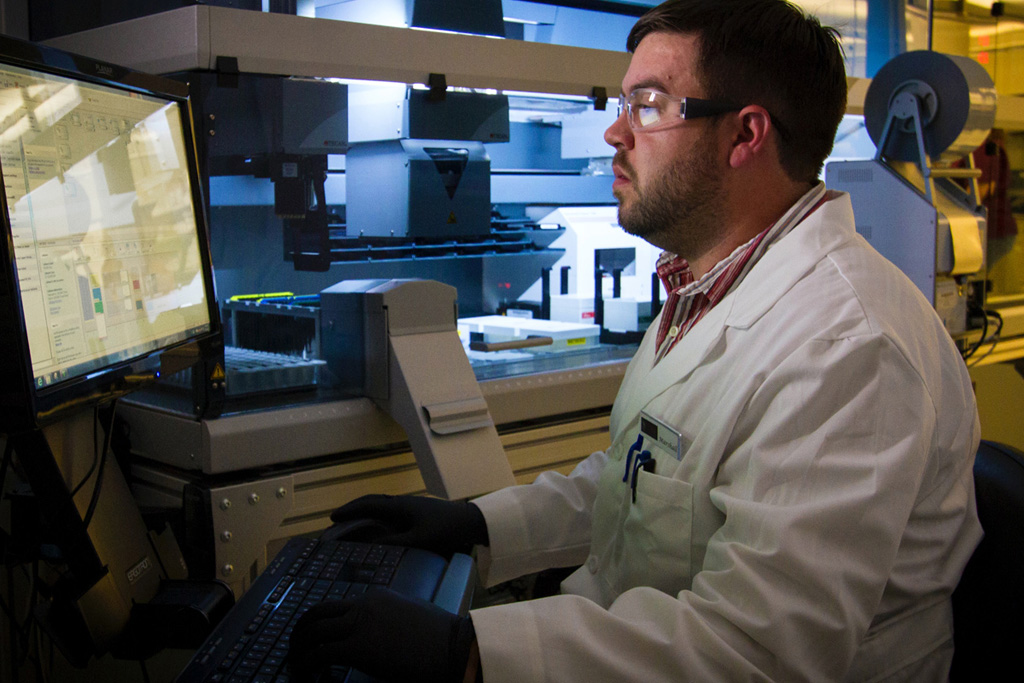How Scientists are Using AI Deep Learning in Molecular Biology?

In the simplest terms, molecular biology is the branch of biology that studies the basis of living activity at the molecule (the smallest fundamental unit of a chemical compound), as defined by ThermoFisher Scientific. “Molecular biologists conduct experiments to investigate the structure, function, processing, regulation and evolution of biological molecules and their interactions with one another — providing micro-level insights into how life works,” many focusing on genes and proteins specifically.
In a recent blog, we defined Artificial Intelligence (or AI) using IBM’s definition: AI “combines computer science and robust datasets, to enable problem-solving.” When talking about the application of AI in the context of molecular biology, that means utilizing computer science to solve problems related to genes, proteins, and other biological molecules. Artificial Intelligence systems are taking over nearly every industry, and molecular biologists are no exception. The consequences could save the lives of important plants and animals, and ultimately the planet.
“Deep Learning” Application in Molecular Biology
One increasingly popular type of AI is called “deep learning,” in which algorithms find features and connections from large sets of data, such as genomes or proteins, and create predictive tools based on patterns.
According to the journal Nature, “in biology, deep-learning algorithms dive into data in ways that humans can’t, detecting features that might otherwise be impossible to catch.” For example, researchers can advance drug discovery by making genomic connections to electronic medical records, combining features such as DNA staining, organelle texture, and even the quality of empty spaces in a cell.
Another application is in the ability to predict and treat disease with greater volume, efficiency, and speed. Research has shown that some AI tools can more quickly integrate predictive methods with the growing knowledge of genetic diseases, enabling substantial automation of diagnoses, which decreases costs and speeds up diagnostics.
One major and recent breakthrough involves the creation of an algorithm that can predict how protein structures will develop based on thousands of already known proteins and their structures.
Ethics & Education of AI in Molecular Biology
One cannot discuss machine learning and artificial intelligence without recognizing the crucial ethical implications at play. Issues such as proper sourcing for DNA information and other biological data, as well as whether or not to make much of this information learned publicly available and accessible. Many industry leaders have brought bioethicists together to keep purpose and ethical decision-making at the forefront when discussing AI and seek to create clear ethical principles for these emerging technologies.
Inspired Futures in AI & Biology
John Carroll University bachelor’s cell and molecular biology students discover the growing role of artificial intelligence in molecular biology and other life science fields through their course and lab work, gaining hands-on experience with growing technologies on a regular basis. Starting with courses in molecular biology to build a strong foundation in the principles of molecular biology, and then applying technology, data analysis, and other techniques to these functions in courses like BL 215 Biotechnology to develop DNA analysis skills such as restriction digests, DNA cloning, plasmid and genomic DNA isolation, polymerase chain reaction, and computer analysis of DNA and protein sequences.
JCU is a private Jesuit university located in University Heights, Ohio, near Cleveland.
